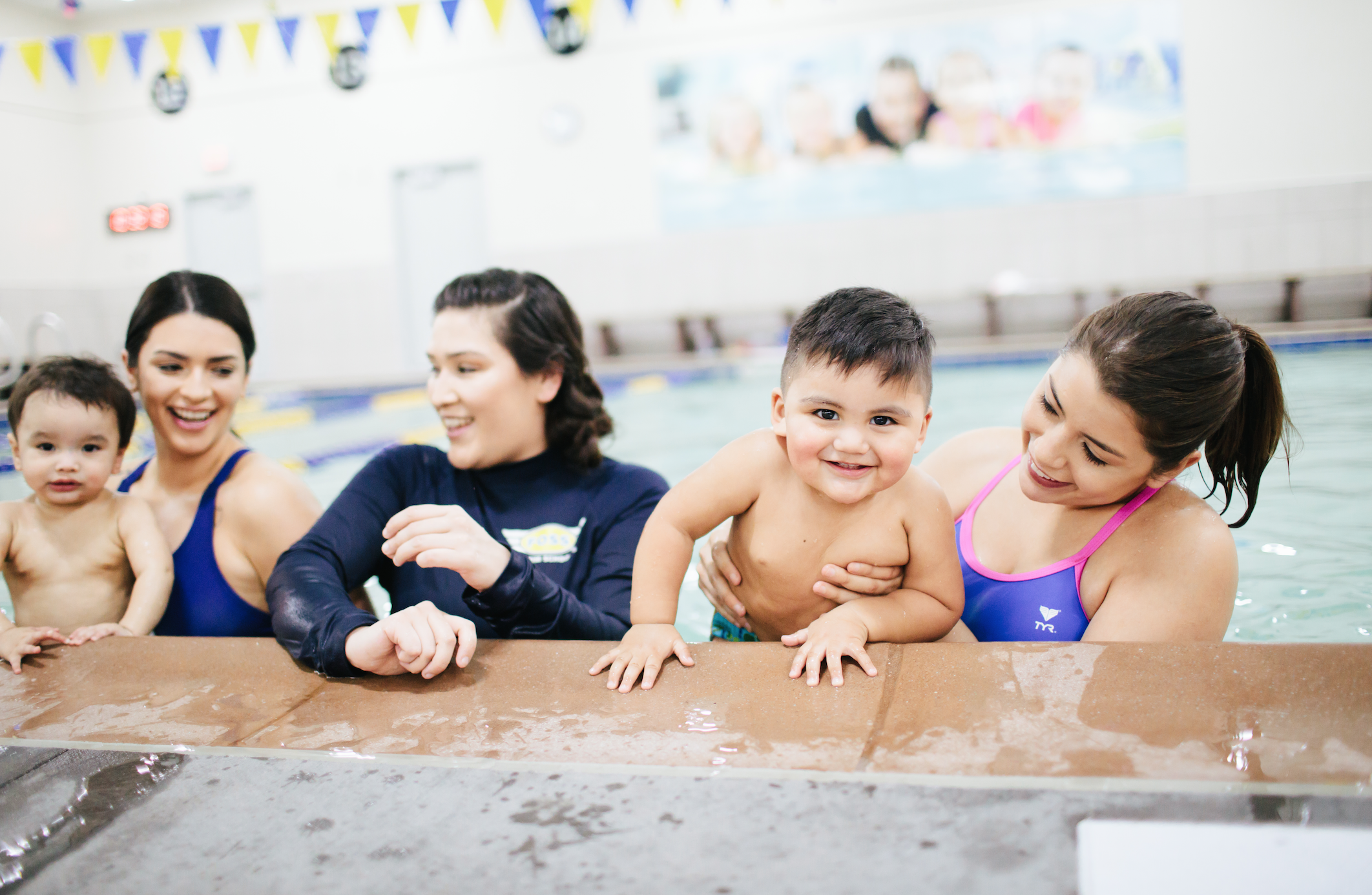Baby swimming lessons teach life-saving skills, confidence, and result in an easier transition to real swimming later in life. Below, we share five benefits babies (and parents!) get from infant swimming lessons.
Five benefits babies – and parents – get from infant water classes
The real goal is not so much perfecting skills as gaining comfort with the water – and making water fun. The benefits are both short and long-term:
- Developing safety skills: We do a lot of humpty-dumpties – sitting on the edge and tipping into the water. The game then is to turn around and grab on to the edge of the pool and eventually learn how to crawl out.
- Getting comfortable with water: In FOSS classes, games teach kids to be OK with water on their faces and in their ears, quick submersions and holding their breath. Beyond safety, this means kids who will be comfortable in the shower and easier to bathe.
- Learning to respect water: Babies aren’t expected to swim, but they do get familiar with what it feels like to float. FOSS avoids using floatation of any kind and discourages catching so babies know what to expect when they get into a body of water – and learn what they can and can’t do. This isn’t on a conscious level, of course, but the alternative – a baby who has no fear and assumes they will always float – can be dangerous.
- Easier transition to real swimming later on: Babies who are comfortable with water will enter true swimming lessons with an advantage. Kids who start with infant classes often skip levels later, where older kids encountering water for the first time need to learn the basic comfort level that comes from infant classes.
- Having fun: Last but certainly not least, being in the water together is fun for babies and parents. They get to socialize, they get skin-on-skin contact with a caregiver, they move their arms and legs – they just love it.
What can parents expect?
Often, the parents are more scared than the kids. This is all new to them and they don’t know what to expect. We can help them get comfortable with having their kids in the water. A little crying at first is normal. Also, many babies, especially younger babies, will repeat levels before they are ready for the next level up.
Finally, parents have to recognize their role – recognizing the real lessons they might be teaching and always staying engaged. Don’t catch your kids or keep them from ever getting their face wet. It gives them a false sense of security. Don’t use water wings or floatation as a substitute for watching your kids. Put the phone away. Get in the water and have fun.
And remember, no amount of swimming lessons can substitute for attentive, present parents or adults. You can never let your guard down, but that doesn’t mean early water encounters don’t provide a valuable additional layer of protection in the event a child ends up in the water.
